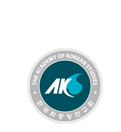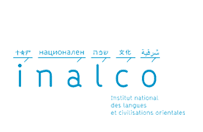
The Korean Collections Consortium of North America (KCCNA) is pleased to announce the KCCNA Research Travel Grants to assist Korean Studies students and scholars worldwide in their use of specialized library resources at the thirteen KCCNA member universities. Funded by generous grants from the Korea Foundation for three years from 2018-2020, this research travel grant program is open to anyone in the world except for those in Korea who already have access to extensive Korean resources. See the list of members and their specialized collections at goo.gl/pfqGeH. The proposal deadline for the current cycle is January 31, 2020.
- Description and Purpose
The Korean Collections Consortium of North America (KCCNA) was created in 1992 with generous grants from the Korea Foundation. Its members cooperatively develop and share specialized Korean Studies scholarly resources and provide library services to a wider audience beyond their own academic communities. Current membership consists of the thirteen largest Korean Studies academic libraries in the US and Canada. The KCCNA Research Travel Grants program was created to assist scholars who need to travel a long distance in order to access the resources and services of KCCNA member libraries.
- Eligibility
This program is open to anyone in the world except for those in Korea who already have access to extensive Korean resources.
- Selection Criteria
While we will consider all applications based on the strengths of the research proposal and the target library’s overall ability to support the research, applications that address the following criteria will receive preferential review:
- Describe how your research topic (on Korea or Koreans) can benefit from KCCNA’s specialized resources, along with a list of specific resources you wish to use, including the links or the call numbers if applicable.
- The need for onsite research at the target library (why that particular library and not elsewhere?)
- Justifications for travel for access (any other means for access such as online or ILL?)
Pour plus d’informations, voir le carnet “Arts de la Coree”.






